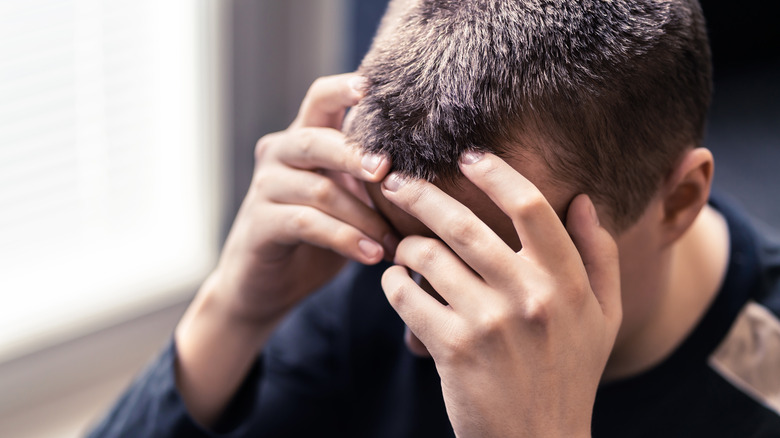Anxiety and depression are both incredibly common mental health issues. The World Health Organization states that more than 264 million people worldwide suffer from depression, making it the world’s leading cause of disability. One in five adults (and one in four adolescents) also show symptoms of anxiety disorders, according to Mental Health America. And while some cases of anxiety and depression overlap, not all do.
Despite their prevalence, however, both conditions are often misunderstood. This usually comes in the form of confused statements like “everyone gets sad sometimes” and “worrying is normal”. But misunderstandings can also come in the form of misidentification or even a belief that the conditions either depend on each other, or that they’re the same.
As the Mayo Clinic explains, depression can cause anxiety. And certain anxiety conditions like generalized anxiety disorder or a panic disorder can lead to depression. But they are distinct conditions with their own unique symptoms and treatments.
The biggest difference

The differences between anxiety and depression can be subtle. But there is one area where they differ greatly. The definitions used to distinguish the conditions are clear and they are the biggest difference between the two. According to Baylor College of Medicine, depression is defined as a loss of energy and zest for life. People with depression will often struggle to eat and will either sleep too much or find it hard to sleep. Depression also causes a deep sense of guilt or shame about a person’s current life.
Anxiety, on the other hand, is focused on the future. Baylor College defines it as “excess future-oriented worry.” In some cases anxiety involves fixating on ways a future milestone can go wrong or be derailed. In other cases this could mean a constant stream of images, thoughts, or ideas about horrible things that may happen and the ways those events can negatively affect a person’s life. Anxiety can also set off an intolerance for uncertainty and change.
The CDC lists therapy and medication as treatment options for both conditions, though the therapy approach and medication used will vary from person to person. This variation can depend on which condition they have or if they suffer from both.
If you or someone you know is struggling with mental health, please contact the Crisis Text Line by texting HOME to 741741, call the National Alliance on Mental Illness helpline at 1-800-950-NAMI (6264), or visit the National Institute of Mental Health website.




